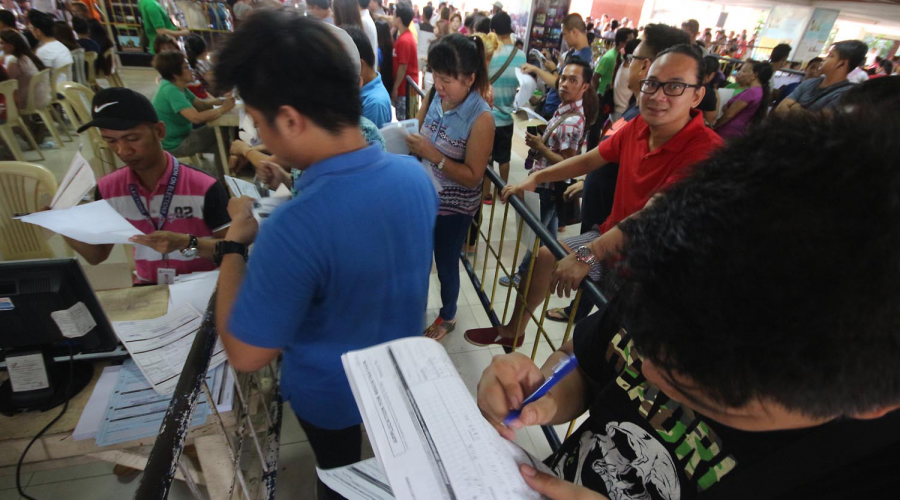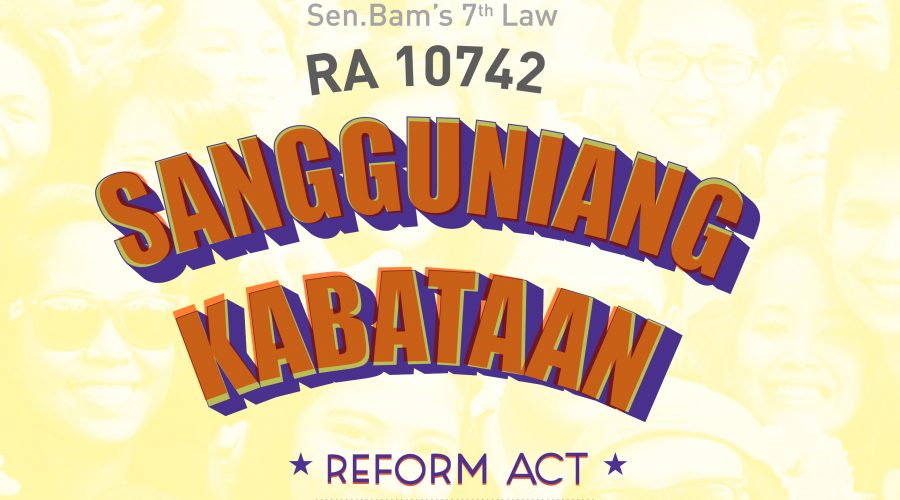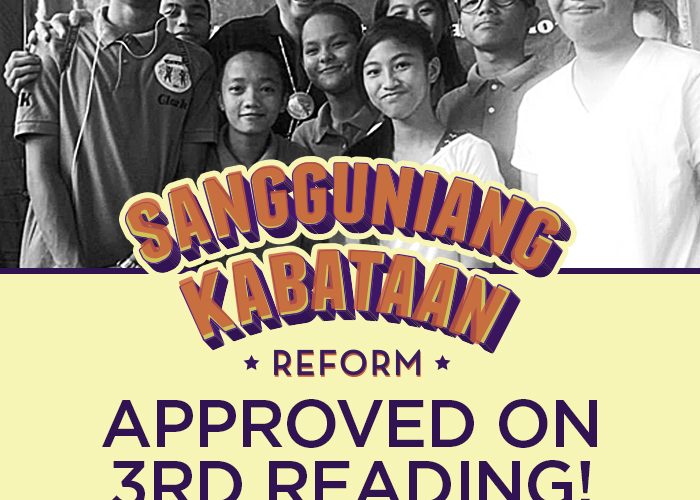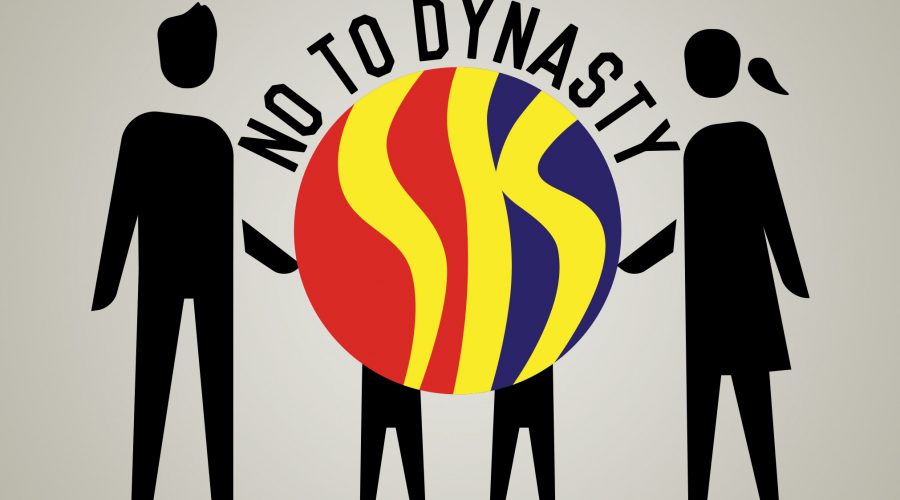Bam urges youth to register for SK polls
Sen. Bam Aquino encouraged the youth to go out and register for the Sangguniang Kabataan elections, which will be held simultaneously with the selection of new barangay officials on October 23, 2017.
The senator made the call after the Commission on Elections (Comelec) reported a low turnout of registrants, which number just 193,229 from January to February 10 this year.
The Comelec is eyeing six million new voters —two million regular-aged voters, and four million youth – before registration ends on April 29. The SK and barangay elections will be held on October 23, 2017.
“Now, more than ever, we must speak out, we must participate in electing our leaders,” said Sen. Bam, chairman of the Committee on Youth in the 16th Congress.
“Let’s not waste our vote and let’s make the most of the SK reforms we fought for in Congress,” added Sen. Bam, who pushed for passage of Republic Act No. 10742 or the SK Reform Act as co-author and co-sponsor in the 16th Congress.
The first legislation with an anti-dynasty provision, the SK Reform Act prohibits relatives of elected officials up to 2nd civil degree of consanguinity or affinity from seeking SK posts.
In addition, the law adjusts age limit of SK officials from 15-17 to 18-24 years old, making them legally capable of entering into contracts and be held accountable and liable for their actions.
Furthermore, SK officials will now be required to undergo leadership training programs to expose them to the best practices in governance and guide their development as leaders.
The new law also mandates the creation of the Local Youth Development Council (LYDC), a council that will support the SK and ensure the participation of more youth through youth organizations.
The LYDC will be composed of representatives from the different youth organizations in the community – student councils, church and youth faith groups, youth-serving organizations, and community-based youth groups.





Recent Comments